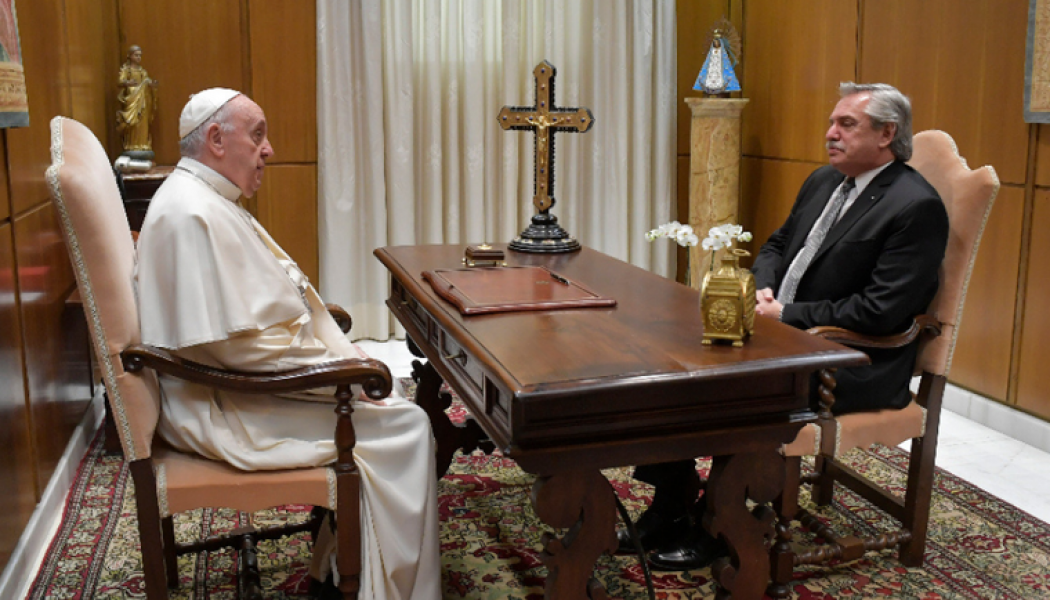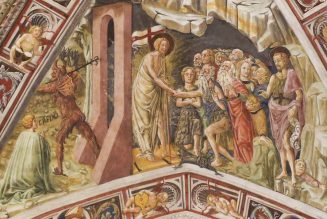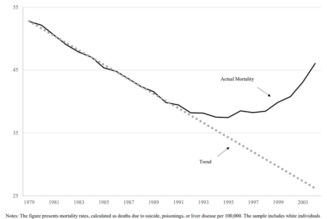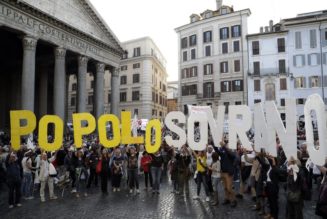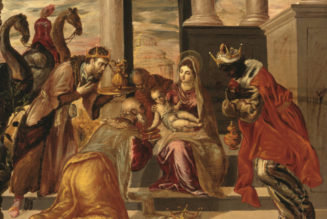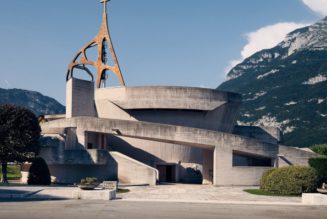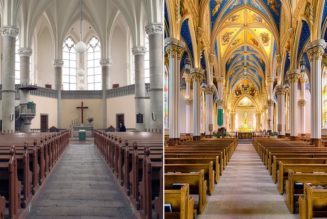
COMMENTARY: The visit of Argentinian President Alberto Fernández to Pope Francis on Thursday was curious — and embarrassing — on several levels.
When Pope Francis thinks about Catholic politicians who promote abortion, it is likely that his first thought is about the president — not of the United States, but of his home country, Argentina.
In a week where the duties of Catholic legislators regarding abortion was at the top of Vatican news, the visit of Argentinian President Alberto Fernández to Pope Francis on Thursday was curious on several levels.
It was the first visit of the president to the Vatican since Argentina legalized abortion last December. The topic was not raised in the meeting, or if it was, the Vatican press office chose not to mention it.
The Holy Father received President Fernández in a private audience on May 13. The meeting was held in a room adjacent to the Paul VI Audience Hall, not the library of the Apostolic Palace where heads of government are usually received. Nevertheless, Pope Francis does use it on occasion; he received Queen Elizabeth and the late Duke of Edinburgh there.
The same setting was used in 2009 when U.S. Speaker of the House Nancy Pelosi requested an audience with Pope Benedict XVI. The Holy Father granted the audience, but forbade any photographs of it from being taken. There would be no photograph with Benedict for the Speaker to display, as President Joe Biden keeps a photograph of himself with Pope Francis in the Oval Office.
After any papal audience with government dignitaries, a bland statement is customarily issued. Not in 2009, when Vatican press office issued a rather spicy one, making it very clear that Benedict had told Pelosi that her public positions were incompatible with the Catholic faith:
“[Benedict XVI] took the opportunity to speak of the requirements of the natural moral law and the Church’s consistent teaching on the dignity of human life from conception to natural death which enjoin all Catholics, and especially legislators, jurists and those responsible for the common good of society, to work in co-operation with all men and women of good will in creating a just system of laws capable of protecting human life at all stages of its development.”
Things were rather different on Thursday. For the first time in memory, the Vatican press statement did not even rise to the level of bland. It simply noted that the meeting took place without any reference to what the pope and president discussed.
The statement did note that in a subsequent meeting with the Secretary of State, gratitude was expressed for “good bilateral relations” and various topics were discussed: the pandemic, the economic crisis, the fight against poverty and the contribution of the Catholic Church in that regard.
There was no mention of Argentina’s recent abortion liberalization.
There is an embarrassing explanation for the silence now.
In January 2020 Fernández met Pope Francis for the first time as president. The Vatican press office claimed later that the Holy Father had raised with Fernández his proposal to liberalize Argentina’s abortion laws. That was not true, as the president quickly made clear.
The embarrassment of pretending that Pope Francis had raised the issue likely explained why the press office was afraid to say anything at all this time around.
In relation to the abortion debate in Argentina, the Holy Father chose to speak indirectly but forcefully. He made no public mention of it, but wrote two letters to private citizens in Argentina which were subsequently published. In one of them, he likened abortion to hiring an “assassin to solve a problem,” an image he has used before.
Fernández highlights the issue of admission to Holy Communion in a particular way. He is a Catholic who has explicitly said that he disagrees with the Catholic teaching that abortion is a grave evil, a position of theological dissent, not just public policy. He is also in an irregular marital situation, separated from his wife and living with another woman.
Nevertheless, both were given Holy Communion by Bishop Marcelo Sanchez Sorondo, head of the pontifical academies, during their 2020 visit. The occasion was a special Mass celebrated by the fellow Argentinian at the tomb of St. Peter, the holiest place in Rome.
The relative quiet of the Holy Father on the abortion question in Argentina, as opposed, say, to his climate advocacy, was likely one factor in an open letter written by Fordham theologian Charles Camosy in January 2021, demonstrating that such concerns are not a matter of intra-Catholic partisanship.
“I’ve been an admirer of your pontificate from the very beginning, and I have remained excited over the last eight years,” Camosy wrote four months ago. “Your vision has been transformational for developing my own pro-life vision, especially when it comes to resisting throwaway culture with a culture of encounter and hospitality.”
Yet Camosy feels that something more is needed, as was more than evident at the Argentinian audience on Thursday.
“Holy Father, I believe you were right to call for a new balance in the Church’s teaching,” Camosy continues. “I believe you were right to spend the first several years of your pontificate building up the Church’s focus on the poor and the stranger. But with the legal recognition of prenatal children being under threat like never before — including from a newly-inaugurated Catholic U.S. president who has pledged to undermine recent prenatal justice gains — now is the time to hold up the other side of the balance. The dignity of these poor children is being systematically erased in a massive genocide around the world. If abortion is what you say it is — akin to a white-gloved Nazi crime — then it is time to put prenatal justice at the center of your pontificate.”
When President Fernández came calling this week, that question was not at the center, not even the periphery.
Join Our Telegram Group : Salvation & Prosperity
